Blog Archive

Locked out: Exclusion, discrimination and repression in the State of ‘Liberté, Égalité, Fraternité’

French disadvantaged neighborhoods as symbolic prisons. Photo: Léa Massé
In the wake of the Paris attacks that struck France in November 2015, the French government adopted a temporary state of emergency, announcing that the country was ‘at war’ with the Islamic State of Iraq and the Levant. The emergency Law – extended until May 2016 – has included a series of measures strengthening law-enforcement scope of actions, including preventive stop-and-frisk, housing arrest without prior judicial approval, warrantless searches, police raids, and citizenship withdrawal for individuals suspected of being involved in terrorist activities. Over a period of six months, more than 3200 raids have been conducted by law-enforcement officials and 400 people have been placed under house arrests. While the state of emergency seems to bear fruits, a recent report published by Human Rights Watch in February 2016 denounces abusive police practices and serious human right violations targeting mostly disadvantaged urban neighborhood residents.
Read more
The Netherlands move ahead with Competition and Sustainability
 By the end of January 2016 the public consultation by the Dutch Minister of Economic Affairs on the new Guidelines Competition and Sustainability will have closed. The Minister will then take into account the remarks made, for example those by the Social and Economic Council of the Netherlands, and finalize the Guidelines calling upon the ACM – the Dutch Competition Authority – to take into account sustainability-benefits when assessing an otherwise anti-competitive agreement. This is quite revolutionary.
By the end of January 2016 the public consultation by the Dutch Minister of Economic Affairs on the new Guidelines Competition and Sustainability will have closed. The Minister will then take into account the remarks made, for example those by the Social and Economic Council of the Netherlands, and finalize the Guidelines calling upon the ACM – the Dutch Competition Authority – to take into account sustainability-benefits when assessing an otherwise anti-competitive agreement. This is quite revolutionary.
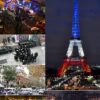
Liberté, Liberté chérie… where things can go wrong. The French reaction to the terrorists attack in Paris
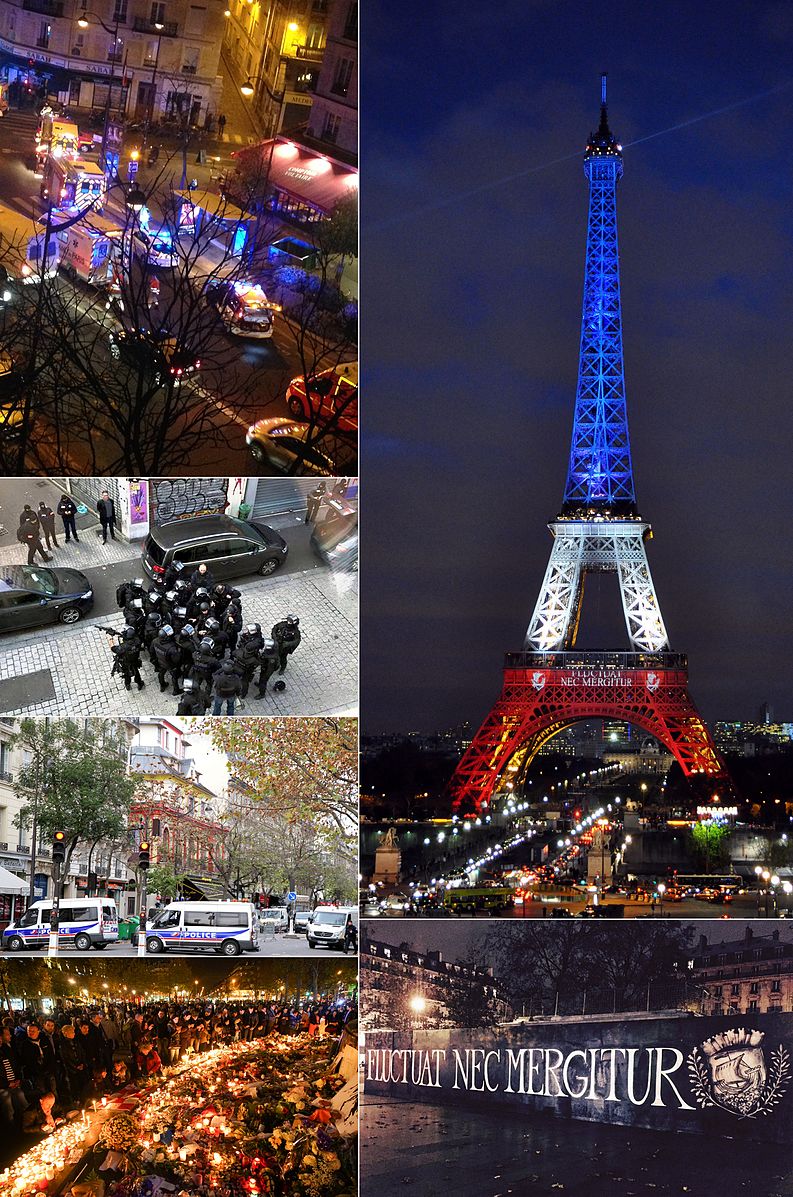
Foto door: Fugitron (CC BY-SA)
Following the Paris attacks of November 2015, president Hollande declared a state of emergency in France for twelve days. It was extended for three months until the 26th of February 2016 by the law no 2015-1501 of 20 November 2015 which, with no surprise, was adopted almost unanimously (only 12 negative votes and one abstention). According to the law no 55-385 of 3 April 1955 the state of emergency can be declared where there is an imminent danger to the public order, or in relation to events which amount, by their nature and severity, to a public disaster. It is clear that this exceptional regime was declared in order to specifically address the terrorist attacks by religious fundamentalists. As in many other Union member states, France witnesses a growing concern for internal security. However, this concern may stifle the equally important concern for justice and freedom that characterizes any state based on the rule of law. It further poses the question of the actual efficiency of legislation on security in the fight against terrorists.
Read more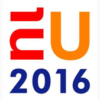
Nederland kan niet zonder de EU. 10 punten voor het Nederlands voorzitterschap.
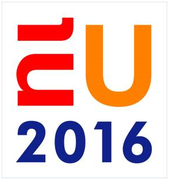 Het Nederlandse EU-voorzitterschap zal ongetwijfeld voor een groot deel in het teken staan van de vluchtelingenproblematiek. Dat is inderdaad een groot probleem, maar de aandacht moet ook op andere inhoudelijke punten worden gericht. In een uitgebreider artikel, dat u hier op mijn persoonlijke blog kunt lezen, heb ik de inhoudelijke aandachtspunten voor premier Rutte, andere politici en instituties voor het Nederlandse voorzitterschap uitgewerkt. In deze blog wil ik slechts 10 korte punten noemen waar het bij ons voorzitterschap ook om zou moeten gaan.
Het Nederlandse EU-voorzitterschap zal ongetwijfeld voor een groot deel in het teken staan van de vluchtelingenproblematiek. Dat is inderdaad een groot probleem, maar de aandacht moet ook op andere inhoudelijke punten worden gericht. In een uitgebreider artikel, dat u hier op mijn persoonlijke blog kunt lezen, heb ik de inhoudelijke aandachtspunten voor premier Rutte, andere politici en instituties voor het Nederlandse voorzitterschap uitgewerkt. In deze blog wil ik slechts 10 korte punten noemen waar het bij ons voorzitterschap ook om zou moeten gaan.

Enforcement of European Union values: how should the EU respond to the recent threat to democracy in Poland?
 Let’s admit it, things are going wrong in Poland and it can be said that democracy is seriously under threat in the European Union’s sixth-largest Member State. On 23 December 2015, the Sejm – the lower house of the Polish Parliament – passed a highly controversial law, which reorganizes the Constitutional Court. A few days later Andrzej Duda – the president of the country since August 2015 – signed the bill into law. The signing took place after a few weeks of a contentious constitutional crisis and despite of the domestic public outcry, large street demonstrations, concerns from the European Commission and the members of the European Parliament and international criticism.
Let’s admit it, things are going wrong in Poland and it can be said that democracy is seriously under threat in the European Union’s sixth-largest Member State. On 23 December 2015, the Sejm – the lower house of the Polish Parliament – passed a highly controversial law, which reorganizes the Constitutional Court. A few days later Andrzej Duda – the president of the country since August 2015 – signed the bill into law. The signing took place after a few weeks of a contentious constitutional crisis and despite of the domestic public outcry, large street demonstrations, concerns from the European Commission and the members of the European Parliament and international criticism.

What role can or should the European or national legislator play in ensuring gender balanced company boards?
 Equality between women and men is a fundamental principle of the European Union. However, there is still an unequal representation of women in decision-making positions in companies throughout the EU. Even though the situation has started to improve, women remain a minority at the top of the decision-making hierarchy. On Wednesday 9 December 2015, this issue will be discussed at the seminar on Gender Balanced Company Boards in the EU at Utrecht University.
Equality between women and men is a fundamental principle of the European Union. However, there is still an unequal representation of women in decision-making positions in companies throughout the EU. Even though the situation has started to improve, women remain a minority at the top of the decision-making hierarchy. On Wednesday 9 December 2015, this issue will be discussed at the seminar on Gender Balanced Company Boards in the EU at Utrecht University.
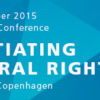
Negotiating Cultural Rights
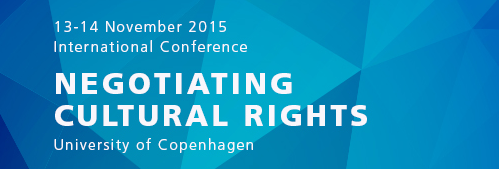 On Friday night, 13 November 2015, the terrorist attacks in Paris took place. Attacks on big city cultural life, spending the evening with friends in concert halls, café’s and bistros, a foodball stadium. That same night was the end of the first day of the International Conference Negotiating Cultural Rights in Copenhagen. This conference celebrated the end of the mandate of the Special Rapporteur (SR) in the field of cultural rights, Fareedah Shaheed, and the publication of eleven reports in the period 2010-2015. At the conference, we had just concluded that cultural rights had grown from the Cinderella of human rights into a beautiful princess. Today, it seems that this princess has to grow up even faster than expected, because we are in need of a Queen of Spades that stands for the protection of cultural rights.
On Friday night, 13 November 2015, the terrorist attacks in Paris took place. Attacks on big city cultural life, spending the evening with friends in concert halls, café’s and bistros, a foodball stadium. That same night was the end of the first day of the International Conference Negotiating Cultural Rights in Copenhagen. This conference celebrated the end of the mandate of the Special Rapporteur (SR) in the field of cultural rights, Fareedah Shaheed, and the publication of eleven reports in the period 2010-2015. At the conference, we had just concluded that cultural rights had grown from the Cinderella of human rights into a beautiful princess. Today, it seems that this princess has to grow up even faster than expected, because we are in need of a Queen of Spades that stands for the protection of cultural rights.

Referendum Oekraïne geen slechte zaak (zoals drie Utrechters beweren). En is parlementaire democratie dan wel zaligmakend?
 Het referendum van Geenpeil over het associatieakkoord tussen de Europese Unie, haar lidstaten en Oekraïne houdt de Utrechtse gemoederen aardig bezig. Maar liefst drie Utrechtse hoogleraren lieten zich de afgelopen weken publiekelijk over het referendum uit. Het begon met Linda Senden, enkele weken geleden in NRC Handelsblad en op dit blog. Hier kwam eind oktober Sybe de Vries bij, met een hartenkreet tijdens zijn oratie. Vorige week was daar tot slot nog hoogleraar mensenrechten Bas de Gaay Fortman die, geflankeerd door politicoloog Bob van den Bos, ook het podium van de opiniepagina van NRC Handelsblad beklom.
Het referendum van Geenpeil over het associatieakkoord tussen de Europese Unie, haar lidstaten en Oekraïne houdt de Utrechtse gemoederen aardig bezig. Maar liefst drie Utrechtse hoogleraren lieten zich de afgelopen weken publiekelijk over het referendum uit. Het begon met Linda Senden, enkele weken geleden in NRC Handelsblad en op dit blog. Hier kwam eind oktober Sybe de Vries bij, met een hartenkreet tijdens zijn oratie. Vorige week was daar tot slot nog hoogleraar mensenrechten Bas de Gaay Fortman die, geflankeerd door politicoloog Bob van den Bos, ook het podium van de opiniepagina van NRC Handelsblad beklom.
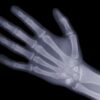
Botten liegen soms: De rol van medische technologie in de lotsbepaling van jonge migranten in Europa
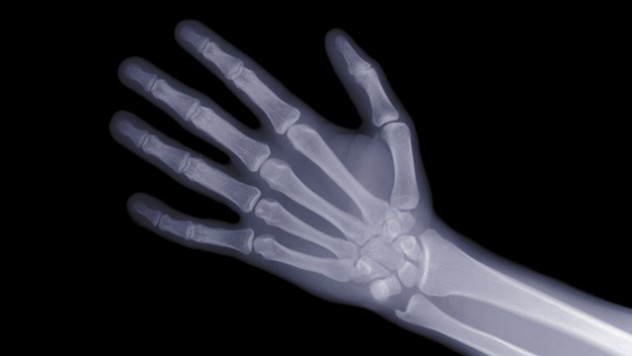 De recente onrust over Syrische vluchtelingen in ‘Fort Europa’ noopt ertoe (opnieuw) stil te staan bij de wijze waarop we invulling geven aan onze principes van humaniteit en de ‘plicht’ of wens hen te beschermen die dat nodig hebben. In het hedendaagse tijdperk van ontologische onzekerheid, (on)veiligheidsdenken of securitization, angst voor de ‘Ander’ en een daaruit voortvloeiende uitsluitende samenleving (naar de gelijknamige studie ‘The Exclusive Society’ van criminoloog Jock Young) staan die principes danig onder druk. Waar we voor vaders, moeders en kinderen die levensbedreigend geweld ontvluchten nog wel enige sympathie en een veilige plek in ons land kunnen opbrengen – zij het soms met moeite en vrees – is dat veel minder het geval voor economische migranten, helemaal als het jonge jongens betreft.
De recente onrust over Syrische vluchtelingen in ‘Fort Europa’ noopt ertoe (opnieuw) stil te staan bij de wijze waarop we invulling geven aan onze principes van humaniteit en de ‘plicht’ of wens hen te beschermen die dat nodig hebben. In het hedendaagse tijdperk van ontologische onzekerheid, (on)veiligheidsdenken of securitization, angst voor de ‘Ander’ en een daaruit voortvloeiende uitsluitende samenleving (naar de gelijknamige studie ‘The Exclusive Society’ van criminoloog Jock Young) staan die principes danig onder druk. Waar we voor vaders, moeders en kinderen die levensbedreigend geweld ontvluchten nog wel enige sympathie en een veilige plek in ons land kunnen opbrengen – zij het soms met moeite en vrees – is dat veel minder het geval voor economische migranten, helemaal als het jonge jongens betreft.

Referendum GeenPeil geen zaligmakende reddende engel
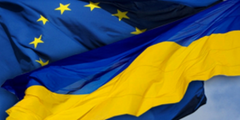 Geweldig dat burgers erin slagen meer dan 300.000 handtekeningen op te halen voor de organisatie van een referendum, maar jammer dat zij dit zien als hét redmiddel van de democratie en als dé manier om de machtsoverdracht aan de EU te stoppen.
Geweldig dat burgers erin slagen meer dan 300.000 handtekeningen op te halen voor de organisatie van een referendum, maar jammer dat zij dit zien als hét redmiddel van de democratie en als dé manier om de machtsoverdracht aan de EU te stoppen.
In die visie liggen twee belangrijke gedachten besloten: dat onze democratie in grote nood verkeert en dat machtsoverdracht aan de EU per definitie een slechte zaak is. GeenPeil legt daarbij de nadruk op het onvermogen van de politiek en het gebrek aan parlementaire grip op wat er in Europees verband wordt besloten. Er spreekt groot ongenoegen uit over hoe ons eigen parlementaire stelsel in EU-verband functioneert en een gebrekkig vertrouwen in hoe onze politici de belangen van burgers vertegenwoordigen. Het referendum gaat echter geen zaligmakende reddende engel zijn.
Read more
